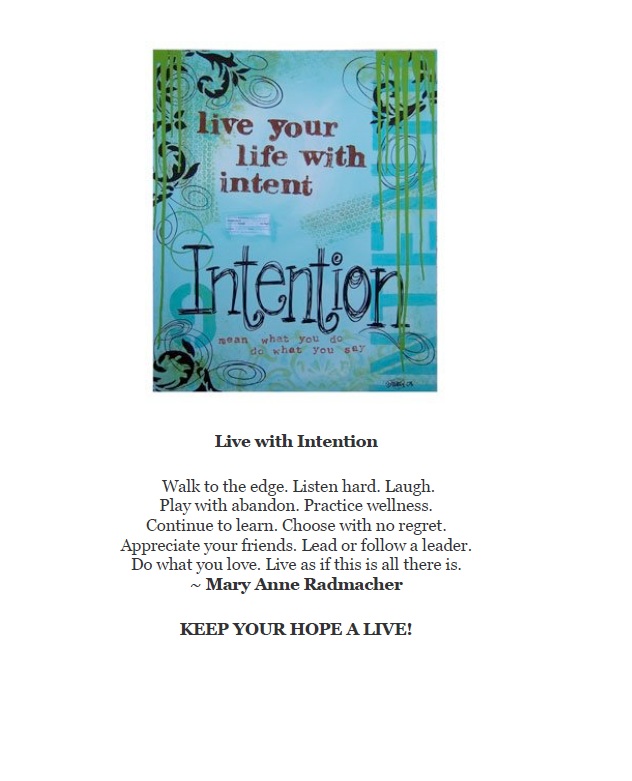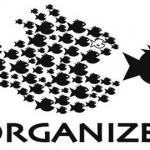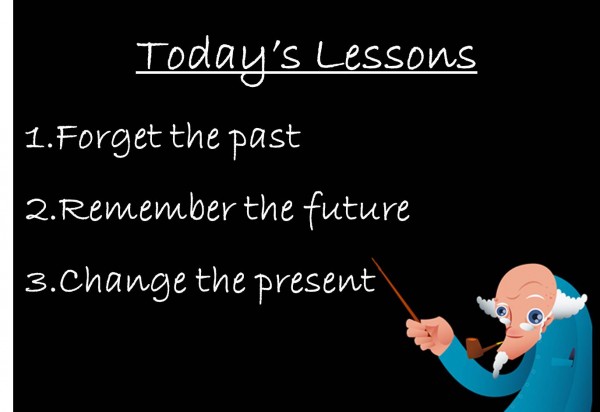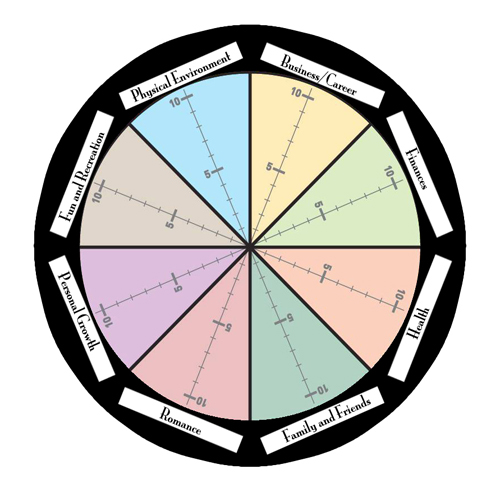


Steps For Landing A Job
STEPS TO LANDING A JOB THAT MAKES YOU HAPPY
Article provided by JobSearchInfo.com
When you’re embarking on a new job search, it is very helpful to first think about the types of jobs you could be happy with. You should think about the type of company, the type of co-workers you’d like to have and what
 kind of responsibilities you would like to have so that you’re on a path to continual growth and progress in your career. The more well thought-out your vision is for your career, the easier the entire process will be.
kind of responsibilities you would like to have so that you’re on a path to continual growth and progress in your career. The more well thought-out your vision is for your career, the easier the entire process will be.
Why is that? I would suggest that when employers hire candidates, they’re not just hiring you for what you can do today. They’re also hiring you for your potential and for how you could fit into the organization a year from now, two years from now, and longer. Hiring employees is always expensive, even in times of high unemployment. Therefore, employers have a strong incentive to hire candidates who they believe will stay a while. If an employer uses a headhunter to hire you, they will pay 10-20% or more of your first year’s salary. Even if they hire without the use of a recruiter, turnover (employees leaving and coming into an organization) is a significant cost. When a job function isn’t filled, it often means the employer can’t produce as much or run their operations as efficiently, which is a greater cost than the cost of paying an employee’s salary. With for-profit organizations, workers are, by definition, worth more than what they’re paid because the company has to earn more than its costs to stay in business. I point this out because many job seekers underestimate their worth and buy into the notion that a company is doing them a favor by hiring them. In reality, when there is a match between employer and employee, it should be a two-way street and a win-win situation: the company benefits just as much as you do. Over time, good employees become more and more valuable to an organization as they learn more about how it works and gain knowledge outsiders wouldn’t have. This brings me back to my original point, which is that employers are looking for someone who they can see fitting into their organization long-term. This is why they often will ask “Where do you see yourself three years from now?” in an interview. It’s also why many career books suggest you learn about a company before interviewing with them. Thinking about where you want to be in the future and what kind of job you’d like to have will go a long way toward helping you create your vision.
The other part of your vision should include ways you can benefit the company you end up working for. If you want to become a top-producing salesperson, the benefit for the company would be increased sales. If you’re an entry-level computer programmer now and you want to become a senior-level programmer in two years, the benefit for the company is gaining an employee who will become increasingly valuable the longer you stay with them. It will help make your vision more concrete to employers and recruiters if you can tie it in with previous achievements. For example, if you want to be on the path to becoming a customer service manager and you’ve already had customers compliment you on your expertise or supervisors write good reviews of you, that is evidence that you have a commitment to your vision. 
Once you have a resume that communicates what experiences you’ve had and how you’re prepared to fit into the vision you’ve created for your future, the next step is to generate leads. You should use as many methods as you can think of to generate leads because the more options you have, the better your chances of landing a job that truly fits in with your goals. Here are some specific steps you can take to generate leads:
* Post your resume on job board websites. Getting your resume on job boards is sort of like a business having a listing in the phone book. It enables recruiters who are looking for someone like you to find you easily. The most popular job board is Monster.com. However, Monster is not necessarily the best site for every profession and every industry. Getting your resume on other job boards like CareerBuilder, Job.com.com, and any niche sites that may exist for your specialty (such as Techies.com for IT professionals or TopSalesPositions.com for sales professionals) is a good idea. If you want to save time and get your resume over 90 job boards at once, we recommend using the fee-based service ResumeDirector.com. A word of advice about posting your resume: most recruiters will locate your resume with keywords. Keywords are words or phrases that would be associated with the function you can perform. For example, an employer looking for a corporate lawyer might search on the terms “in-house lawyer,” “corporate attorney,” or “corporate lawyer.” So you should make sure any terms you can think of that an employer would search to find you are included in your resume somewhere.
One way to do this is to vary the terminology you use in your resume. In describing your duties for a previous employer, you could refer to yourself as a “corporate lawyer” in one sentence and as an “in-house lawyer” in the next.
- Network With Other People. Networking is a powerful way to land a new job. It has been estimated that 85% of jobs are filled by word of mouth. In addition to the fact that many positions are not widely advertised, finding a job through networking often means there’s less competition. So you could have a greater chance of getting the job than if the employer is considering you among 5-10 other people they
 found through a job site. A good place to start networking is the local chapter of the professional association for your field. Often called the “association of associations,” the American Society of Association Executives’ web site provides a search screen to find associations in specific industries and professions. You can check it out at www.asaenet.org/find/ Also, local business magazines (such as Crain’s local business publications) often include information on networking events. Want to learn more about networking? Harvey Mackay is one of the leading experts on building personal relationships through networking and has written a great book on the subject called “Dig your well before you’re thirsty: the only networking book you’ll ever need.”
found through a job site. A good place to start networking is the local chapter of the professional association for your field. Often called the “association of associations,” the American Society of Association Executives’ web site provides a search screen to find associations in specific industries and professions. You can check it out at www.asaenet.org/find/ Also, local business magazines (such as Crain’s local business publications) often include information on networking events. Want to learn more about networking? Harvey Mackay is one of the leading experts on building personal relationships through networking and has written a great book on the subject called “Dig your well before you’re thirsty: the only networking book you’ll ever need.”
* Contact Local Recruiters. Recruiters, also known as Headhunters, are people whose business is based on “selling” candidates to employers. Recruiters are a good channel to use because they already have relationships with employers, and they have a financial incentive to help you land a job if they could see you fitting in with one of their clients. For a recruiter to get you placed with a company, they will often need to “pitch” you to their client. You can help make their job easier by coming up with some of the key elements they could use in that pitch. This goes back to the concept discussed earlier of developing a vision for your career. If you have an interesting story to tell about where you’re going and how your past experiences tie in, that is something that can get both recruiters and the direct employers excited. Recruiters want to hear about the interesting things that make you unique because that helps them pitch you to their clients. If you’re just starting out on a job search, contacting recruiters who specialize in your field and meeting with them is a great way to get a feel for your marketability. Recruiting is a people business so I’d suggest meeting with recruiters in person, if possible. If a recruiter has met you in person, they’ll be more likely to think of you if a client has a position you could be good for. If you contact a recruiter over the phone or by e-mail and they say they don’t have any positions for you right now, ask if they might have some in the future. If they think they would, you might suggest meeting in person now so that they’ll have already interviewed you if a position opens up. That makes them better prepared for possible client needs and gives you an edge over potential competition. A good place to go to find local recruiters is Recruiters Online at www.RecruitersOnline.com. This site provides a search feature where you can find recruiters in your area and in your field. - Contact Employers Directly. Are there certain companies you know where you’d like to work? If so, it wouldn’t hurt to contact them to find out if they have any positions open that might interest you. Also, many employers list jobs on their website that they don’t post on job boards. Monster.com is a good
 place to go to respond with your resume to specific job opportunities. However, keep in mind that there is often stiff competition with other job seekers on Monster because it’s the most popular job board. Another good site is Flipdog.com, which often lists positions not shown on other job boards. DirectEmployers.com is a site that is actually a consortium of several large companies. With DirectEmployers, the companies pay a flat rate to list as many jobs as they want, which often means they list more positions than they would with a regular job board. A good source for government jobs is AmericasJobBank.com. America’s Job Bank also lists private sector jobs and it is run by the U.S. Department of Labor in conjunction with the Departments of Labor in the individual U.S. states.Once you have identified good job leads that seem to fit in with a job you could be happy with in the long-term, some of those leads will progress into interviews. Successful interviewing is about showing the employer how you can fit in with their needs and also making sure they would be a good fit for you. I commented earlier that if your vision for your career fits in with the employer’s vision, they will benefit from having you as an employee just as much or more than you benefit from working there. So the frame through which you view the job opportunity makes a big difference in how successful the interview will be. If you see it as a potential win-win opportunity, it becomes about you and the employer helping each other achieve goals. That will translate into increased confidence for you in the interview. Here are some specific interviewing tips:
place to go to respond with your resume to specific job opportunities. However, keep in mind that there is often stiff competition with other job seekers on Monster because it’s the most popular job board. Another good site is Flipdog.com, which often lists positions not shown on other job boards. DirectEmployers.com is a site that is actually a consortium of several large companies. With DirectEmployers, the companies pay a flat rate to list as many jobs as they want, which often means they list more positions than they would with a regular job board. A good source for government jobs is AmericasJobBank.com. America’s Job Bank also lists private sector jobs and it is run by the U.S. Department of Labor in conjunction with the Departments of Labor in the individual U.S. states.Once you have identified good job leads that seem to fit in with a job you could be happy with in the long-term, some of those leads will progress into interviews. Successful interviewing is about showing the employer how you can fit in with their needs and also making sure they would be a good fit for you. I commented earlier that if your vision for your career fits in with the employer’s vision, they will benefit from having you as an employee just as much or more than you benefit from working there. So the frame through which you view the job opportunity makes a big difference in how successful the interview will be. If you see it as a potential win-win opportunity, it becomes about you and the employer helping each other achieve goals. That will translate into increased confidence for you in the interview. Here are some specific interviewing tips:
* Research the Company Beforehand. If you come in to the interview knowing about the company through research on their website, perhaps through talking to people who’ve worked there, etc., you will come across like a professional who is serious about finding a good match with an employer.
* You should do as much listening as possible in the interview to find out what the employer is seeking. The more you know about what the employer wants, the better you can tailor your responses so that they fit in with the employer’s vision for the position. This doesn’t mean you should lie or exaggerate. However, knowing more about what qualities are important to the employer will help you determine which aspects of your experience, personality, vision for your career and vision for how you can help them to emphasize. For example, if an employer is most concerned about finding someone with good people skills, you’d be better off talking about how well you work with people and how you like working with others than you’d be talking about your great computer skills (although it would be important to talk about computer skills too if the employer is interested in that). How can you find out what things the employer values? If you’re asked an open-ended question like “Tell me about your experience with this kind of work,” you could respond with a question like “I have a wide range of experience. If you could tell me what qualities are important to you when considering someone for this position, I can better address specific ways that I’m qualified.”
* Most interviewers will give you an opportunity to ask questions about the position or the company. Depending on how much structure there is to the interview, you could bring up the topic yourself or the interviewer may ask if you have any questions at the end. This would be a good opportunity for you to ask questions to determine if you think the position would be a good long-term fit for you. Questions could include asking the interviewer what they think of the company. Or asking what the co-workers are like. In addition to these questions providing you with information, they illustrate to the interviewer that you are serious about finding a good match and they will be more likely to see you as an honest, straightforward person they can feel comfortable hiring.
All in all, job searching is about deciding what you want out of your career and matching yourself up with an employer who can help you get there. When you look at job searching from this kind of carefully considered perspective, you’ll come across to employers as professional and serious about finding a position that makes sense for both you and for the employer. Δ

Organizing Your Job Search
It’s a brand new year, and it’s time to clean up and organize your job search! That’s right — everything from brushing up your resume to getting all your information organized to do your resume. Need suggestions?
That’s what we live for! We have outlined some simple “no frills” ways to get your job search together so that you know exactly where you are to where you are headed on the hunt for that brand new shiny job!
- Organize; Don’t Procrastinate. Do not use your organizing time as a way to procrastinate. You can only push paper around so
 much until you’re not leaving yourself any time to do any actual job searching. Get your stuff together, then do something with it! You can’t finish the race if you don’t start it!
much until you’re not leaving yourself any time to do any actual job searching. Get your stuff together, then do something with it! You can’t finish the race if you don’t start it! - Create A Command Station. Make sure that you have an area where you can keep all of your file folders
 and job search items. If you don’t have a lot of space, get a large 3-ring binder and put everything inside! Get or make yourself some dividers and you have a mobile office that you can take with you 24/7. Maybe you’re a techy. You can put everything on your laptop in one folder on your desktop, and when you open that folder, you know you’ll have everything you need!
and job search items. If you don’t have a lot of space, get a large 3-ring binder and put everything inside! Get or make yourself some dividers and you have a mobile office that you can take with you 24/7. Maybe you’re a techy. You can put everything on your laptop in one folder on your desktop, and when you open that folder, you know you’ll have everything you need! - Equipment Gathering. Your prospective new boss is trying to relay a number to you for you to contact his manager, so that you can interview for a position that is open with his company. You,
 however, don’t have a pen or paper to jot down the number. No good! You need to get everything that you need at your work station and that includes pen, paper, and planners. Make sure that you have everything you need, and don’t remove it from that spot. Keep all your materials together and you will never have to worry about missing out on any important information!
however, don’t have a pen or paper to jot down the number. No good! You need to get everything that you need at your work station and that includes pen, paper, and planners. Make sure that you have everything you need, and don’t remove it from that spot. Keep all your materials together and you will never have to worry about missing out on any important information! - Develop A Tracking System. You just applied to Murray Corporation last Tuesday, then Henrietta Depot the Thursday before that — not to mention Davis Enterprise the Wednesday before that. Needless to say, you are going to need a way to track who and where you applied with so that you are not continuously re-tracing the tracks you have made! It can be something as easy as a paper filing system broken into parts such as:
• Date applied
• Follow-up date,
• Date interviewed
• Date application was dropped off, etc.
Or maybe you could have something as advanced as a database file that tracks and sorts the information for you by date. Or perhaps, it can just be a plain calendar that you color-code to track your preferred job application or interview. Whatever you use, make sure it’s something that you can keep up with!
- Take Time To Search. Searching for work is a job within itself. As such, you need to block out time to do just that. Your Search is
 your job, and you need to treat it like one. Make a schedule, get dressed as if you’re going to work, and start searching. Studies have shown that when you act like you’re on the clock, you get a lot more done. Putting yourself on a schedule gives you a sense of urgency that you would not normally have. Not only do you need to treat that time like your search is a job; those around you need to treat that time like it is as well. It is of benefit to everyone that you locate work, so taking it serious is something that you can all share.
your job, and you need to treat it like one. Make a schedule, get dressed as if you’re going to work, and start searching. Studies have shown that when you act like you’re on the clock, you get a lot more done. Putting yourself on a schedule gives you a sense of urgency that you would not normally have. Not only do you need to treat that time like your search is a job; those around you need to treat that time like it is as well. It is of benefit to everyone that you locate work, so taking it serious is something that you can all share. - Research. You should make a list of companies where you feel you would like to work, based on your skills set. Then, you need to make another list of companies based on your peripheral skills set (jobs that you can do because you know how to do your first job). Then, do another list of jobs that you will take if push comes to shove. After you have compiled that list, then, you need to research each company. Maybe visit one or two to check out the environment. Find out who the hiring manager is, and maybe, make a friend. Get the address and phone number of the places you have on your list. Know where they are, and know how to get there. By doing a little research, you not only know what to expect, you
 know how to tailor your resume for each company!
know how to tailor your resume for each company!
Your job search is a serious subject, and we know the frustrations that you feel at times. Getting organized will cut through some of the frustration and keep you prepared to take the job of your dreams. Keep heading toward your dream job and you will get there! Δ

Putting Valentines Back In Your Budget
By Sheena Williams
Valentine’s Day is quickly approaching! That’s right, hearts, flowers, candy and cards! It’s a chance to re-connect with those you love, whether you are in a relationship or not. It’s a chance to show someone that you appreciate them for being in your life and sticking it out with you through thick and thin. We know that some of you still have not have fully recovered from the holidays, so we are going to give you some inexpensive, but nice things for you to do for those you care about!
 Homemade Cards — You can do a lot with a sheet of paper and some simple dollar store items. Make a card with a personal message inside. Not poet lariat? Get online and find a quote or message that explains what it is that you want to say perfectly. It’s not about having that symbol at the bottom of your card that shows you care, it’s about the words in the card that express how much you care that shows it.
Homemade Cards — You can do a lot with a sheet of paper and some simple dollar store items. Make a card with a personal message inside. Not poet lariat? Get online and find a quote or message that explains what it is that you want to say perfectly. It’s not about having that symbol at the bottom of your card that shows you care, it’s about the words in the card that express how much you care that shows it.
 Artificial Roses — So, everyone in your hunny bunny’s office is showing off their expensive bouquets of roses and other assorted flowers. Well, with some felt, construction paper or red gift wrap, you can create a beautiful bunch of flowers that will not only be the envy of everyone in the office, but it will be something that your love bug can keep long past after everyone else has thrown their flowers away!
Artificial Roses — So, everyone in your hunny bunny’s office is showing off their expensive bouquets of roses and other assorted flowers. Well, with some felt, construction paper or red gift wrap, you can create a beautiful bunch of flowers that will not only be the envy of everyone in the office, but it will be something that your love bug can keep long past after everyone else has thrown their flowers away!
Homemade Candy — For pennies on the dollar, you can create candies and treats to give to your loved ones! You can get chocolate-covered pretzels, courtesy of the dollar store or you can make pralines right from your own kitchen. Maybe you want to make cupcakes so that he/she can pass them out among their co-workers or family. This is something really easy to do on your valentines to-do list.
 Do Something Special — If the one you cherish is having a hard time with something, offer to spend Valentine’s Day helping them out. Maybe they need help in the garden or maybe they need help in having their tools reorganized. Whatever it is you do, make it fun! Make sandwiches and soda and make an afternoon or a night of it. Go to the park and stargaze, should the weather permit. Just being together on Valentine’s Day will brighten up even the gloomiest day.
Do Something Special — If the one you cherish is having a hard time with something, offer to spend Valentine’s Day helping them out. Maybe they need help in the garden or maybe they need help in having their tools reorganized. Whatever it is you do, make it fun! Make sandwiches and soda and make an afternoon or a night of it. Go to the park and stargaze, should the weather permit. Just being together on Valentine’s Day will brighten up even the gloomiest day.
 Make Dinner — Candles, tablecloths, music and food… I’m not sure what else you need to say or do that means I love you, but that works for me! Taking the time to make dinner for the one you love shows that you care and that you want them to be happy. You want them to put up their feet and relax.
Make Dinner — Candles, tablecloths, music and food… I’m not sure what else you need to say or do that means I love you, but that works for me! Taking the time to make dinner for the one you love shows that you care and that you want them to be happy. You want them to put up their feet and relax.
 Free Events — Most cities have holiday-themed events, and Valentine’s Day is definitely a holiday! Go to a club and dance the night away. Go and listen to jazz in an off-the-beaten path lounge. Maybe someone is doing some poetry readings. You don’t have to spend money to make the day special, and it’s not only something to do for them, but it’ll be a stress reliever for you at the same time!
Free Events — Most cities have holiday-themed events, and Valentine’s Day is definitely a holiday! Go to a club and dance the night away. Go and listen to jazz in an off-the-beaten path lounge. Maybe someone is doing some poetry readings. You don’t have to spend money to make the day special, and it’s not only something to do for them, but it’ll be a stress reliever for you at the same time!
Whatever you do, make sure that you put your all into it. Your significant other is there supporting you and ensuring that everything is falling into place around you. They help keep the “crazies” at bay (unless you are the crazy, then, they just love you instead), and that should give you that fluttery feeling in your chest. Don’t half way do it; put all the love that you feel into whatever you do. If they are your significant other or your “bestie,” then, they deserve everything you do for them, right? Δ

Life Wheel
By Sheena Williams
 Looking at the ups and downs of last year can certainly make your head spin. All of the choices that you did or didn’t make, the chances that you did and didn’t take have all led you to the “you” that you are at this moment! What’s done is done, and it can’t be changed, but what you can do now is make sure that you are headed in the right direction! This is where the Life Wheel comes in!
Looking at the ups and downs of last year can certainly make your head spin. All of the choices that you did or didn’t make, the chances that you did and didn’t take have all led you to the “you” that you are at this moment! What’s done is done, and it can’t be changed, but what you can do now is make sure that you are headed in the right direction! This is where the Life Wheel comes in!
The Life Wheel allows you to gauge your progress toward happiness. Ideally, your life should be balanced within these various areas:
• Finance/Wealth
• Health/Fitness
• Social/Friends
• Family
• Love
• Recreation/Fun
• Contribution
• Personal Growth
• Spiritual, and
• Self-image.
All of these things comprise the makeup of who you are and leans you toward a balanced life.
To help you chart your progress toward happiness, we have included a Life Wheel. With this wheel, you can ask yourself questions and plot your points where you feel you are at this particular moment. As you go through the exercise, remember that this is not about beating yourself up. Some of the choices we make may not have been the best, but they are the choices that we made with the information and time available to us. Your goal is to reach toward happiness now and not allow yourself to wallow in the past.
Check out the Life Wheel for yourself.
Instructions:
Step 1: Ask yourself each question and give yourself a rating from 0 to 10, (0 being no progress made and 10 being progress attained).
- ____ Business/Career/Studies Where do you feel you are with regard to your work? If you’re working, then rate your satisfaction with your job goals? Are you a student? Where do you feel you are with regard to your grades, studying, and career goals?
- ____ Finance/Wealth How do you feel about where you are financially? Do you have the savings you want? Are you secure with what you have? This is not about being rich; it’s about how you feel about where you are financially at the moment.
- ____ Health / Fitness How do you feel with regard to your health? This isn’t about your size; it’s about whether you can pass a physical. Do you breath correctly, do you work out on a regular basis? How do you feel about your level of physical activity?
- ____ Social / Friends How are you doing with your friends? Do you support them and are they supportive of you? Do you have fun when you go out with them? Are they more trouble than they are worth? Are there any negative influences?
- ____ Family Are you happy with how your family is getting along with you, not whether they get along with Aunt Delia or not. Do you get along with those family members who are important to you? Do you need to apologize to anyone? Do you feel you are owed an apology? Do you love being around them?
- ____ Love How loved do you feel? This is not necessarily romantic love. This is about how loved you feel overall by your family and friends. Do you feel that you are emotionally validated by those you have around you?
- ____ Recreation/Fun Do you participate in things that you enjoy? Hobbies, martial arts, card collecting, or any other activity that you do to relax. Do you take time for yourself?
- ____ Contribution How do you feel about your contribution to society? Do you give back to the community? Do you do unto others as you would have them do unto you? How often do you do something for someone with no expectation of reward in return?
- ____ Personal Growth Do you read on new ways to do things? Take a computer class or maybe take a cooking class? Watch documentaries on the civil war? Take up a hobby that builds your hand and eye coordination? Do you do things to better yourself and keep yourself thinking?
- ____ Spiritual This is not necessarily religious, though it can be. Do you belong to a church that you attend regularly? Do you meditate? Are you Agnostic or Atheist? Do you chant to the tunes of bells, or do you quietly pray at the end of your day and before every meal? What is it that you do that keeps you centered and focused on what it is you want out of life, and are you taking the steps to make sure it happens?
- ____ Self-Image Forget about what everyone else thinks about you. Forget about the way your Pomeranian looked at you when you walked in the door. What do you think about yourself and where you are at this moment? As a reminder, this is not where you can dump on yourself and criticize yourself. This is where you take a few minutes to think of all the things that you believe are great and all the things that you could work on and sum them up in one rating.
Step 2: Once you have rated yourself plot them on the included chart with a point then connect the dots.
Step 3: Once you have connected all of the dots, then, read on to find out what the shape of your wheel means.
- A Consistent Small Wheel — Notice the small wheel due to the low scores? This means that there are things going on in your life that are hindering you from broadening your wheel. Take some time to figure out what it is and take the steps necessary to broaden your circle.
- A Lopsided Wheel (a wheel that’s larger on one side then the other) —Decent! It means that you are moving forward in some parts of your wheel. However, it may also mean that you have neglected other parts of your wheel in pursuit of other parts. Try to balance your wheel out.
- A Generally Broad Wheel With a Few Low Points — You are doing really well. Most wheels look like this. Your scores are pretty equal all the way around, but there are a few areas that you could work on. Take some time out to figure out what these areas are and see if you can straighten them out!
- A Large Complete Wheel (Circle) — I’m sure the Dali Lama has a complete circle, but we mere mortals find this shape to be the hardest to obtain. It’s doable, but it takes a lot of balancing to have all of your ducks lined up in a row. And honestly, that is just a part of the human condition to strive to be better. A possible trap that some may fall into once they reach 8 and up on their wheel is that they will feel there is no room for improvement which is furthest from the truth. There is always room to improve yourself. Your wheel may never be perfectly round, but it’s the process of getting it there that makes it worth it!
Look at the scores and the shape of your wheel and take this as a chance to ask yourself some questions and do some soul searching. This isn’t for assigning blame or pointing the finger. Small scores are not a red flag for unhappiness. It just means that there are some areas that you may want to look into to round out your life. This wheel is about locating your happiness and finding a way to move toward it! Take a deep breath, get a piece of paper and a pen and start writing out some plans and wishes!
WPMG offers an electronic book called the “The Me I Want To Be.”  This publication can help you find the person that you hope to be. It will take you from where you are to where you want to go. “The Me I Want To Be” may help you sort out some of the imbalance on your wheel by helping you figure out exactly what it is that you wish to do. Check out the WPMG Network tab on campusjobxpress.com. Good luck! Δ
This publication can help you find the person that you hope to be. It will take you from where you are to where you want to go. “The Me I Want To Be” may help you sort out some of the imbalance on your wheel by helping you figure out exactly what it is that you wish to do. Check out the WPMG Network tab on campusjobxpress.com. Good luck! Δ





